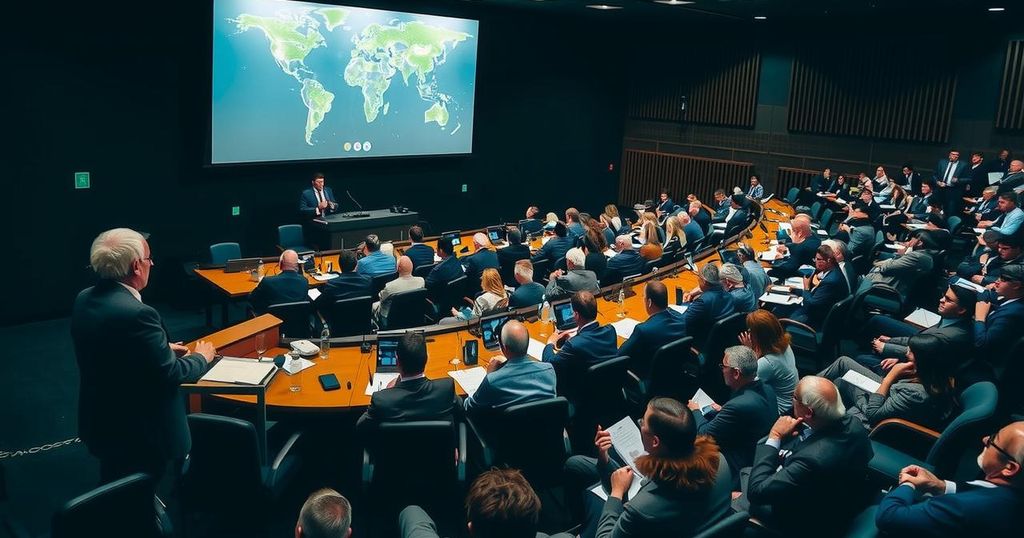Recent UN climate talks in Baku struggled to produce an agreement, mirroring challenges faced at previous conferences. Notable failures include COP6 in 2000 and COP15 in 2009, both marked by political disputes and logistical issues that undermined consensus. A recent biodiversity conference also encountered similar obstacles, resulting in calls for renewed discussions. The ongoing difficulties highlight the complexities of achieving global climate consensus amidst differing national priorities.
Negotiators at the recent UN climate talks in Baku faced persistent challenges in reaching an agreement, echoing past conferences which have often experienced similar troubles. Since the first conference in 1995, numerous sessions have devolved into conflict or ended without consensus. Notably, COP6 in The Hague was suspended entirely amid disputes linked to the razor-thin U.S. presidential election, highlighting the impact of political uncertainty on climate negotiations. The following Bonn talks revived momentum, especially after President Bush made the controversial decision to withdraw the U.S. from the Kyoto Protocol.
The infamous COP15 in Copenhagen in 2009 was marked by soaring expectations yet resulted in profound disappointment. The arrival of world leaders, including President Barack Obama, raised hopes for decisive action against climate change. However, disagreements, particularly with China regarding binding commitments, contributed to a lack of substantial agreement, encapsulated by the inadequately recognized Copenhagen Accord. Delegates were also hindered by logistical failures, further hampering negotiations.
More recently, the biodiversity COP16 faced its own obstacles, concluding without necessary financial commitments to protect natural ecosystems. Colombia, having hosted the talks, called for renewed discussions in 2025 due to insufficient participation as many were either exhausted or left early. The overarching theme of these events illustrates the ongoing struggles to achieve global consensus on environmental issues.
The efficacy of UN environment conferences, particularly climate talks, has historically been challenged by political disputes, differing national interests, and logistical failures. The conferences aim to establish international agreements to address climate change, but they often fail to generate binding commitments. The history of these events reflects a contentious interplay between economic interests, political ideologies, and environmental needs, highlighting obstacles that prevent consensus and effective action on climate matters.
The recurrent failures at UN environment conferences underscore the complexity of achieving international consensus on climate action. Historical instances, such as COP6 and COP15, reveal that political uncertainties and disagreements among key nations significantly derail negotiations. As global environmental challenges escalate, the need for cooperative and binding climate agreements becomes increasingly critical, yet the path forward remains fraught with challenges.
Original Source: www.france24.com






